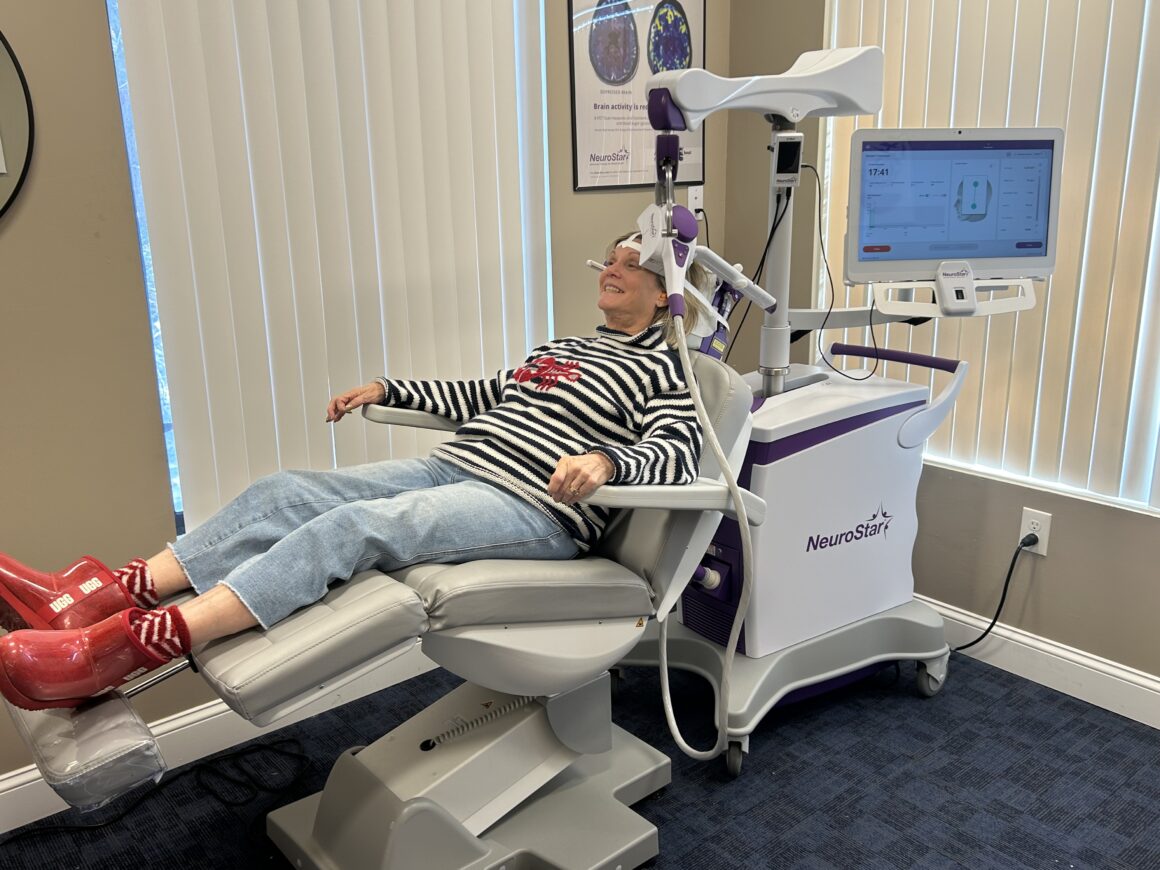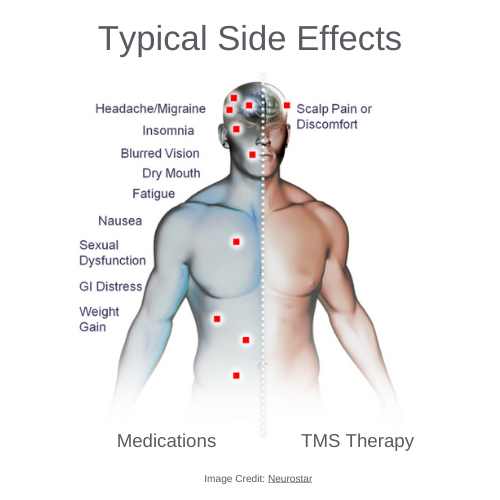TMS Therapy uses a magnetic field, comparable to those found in MRI machines, to activate brain cells in areas believed to regulate mood. This magnetic stimulation might positively influence the levels of neurotransmitters in the brain, potentially leading to lasting remission.
- Sessions are held at Dana Behavioral Health’s Hanover office.
- The course of treatment is typically 36 sessions, held 5 days/week.
- Treatments typically take about 20 minutes.
- You are conscious during treatment and can immediately resume your regular activities post-treatment.
- It does not impair memory or sleep.
- Most health insurance plans, including Medicare, typically cover TMS Therapy.

Key Features of TMS Therapy Include:

Non-Invasive: TMS is a non-invasive procedure, meaning it does not involve surgery or the insertion of any instruments into the body. This makes it a well-tolerated option for individuals seeking alternatives to traditional treatments.
Focused Stimulation: The electromagnetic pulses used in TMS are targeted to specific regions of the brain, allowing for precision in addressing mood-related symptoms. This focused stimulation is designed to influence neural circuits associated with mood regulation.
Minimal Side Effects: TMS therapy is associated with minimal side effects. Most individuals tolerate the treatment well, with common side effects being mild scalp discomfort or a tapping sensation during the session.
Outpatient Procedure: TMS sessions are typically conducted in an outpatient setting, allowing individuals to resume their daily activities immediately after the treatment. This makes TMS a convenient option for those with busy schedules.
Effective for Depression and Other Conditions: TMS therapy has been FDA-approved for the treatment of major depressive disorder that has not responded adequately to other antidepressant treatments, as well as adults struggling with Obsessive Compulsive Disorder (OCD) and anxious depression*.
*Each client is assessed individually for eligibility for TMS Treatment.
Any questions? Please email us at tms@danabehavioralhealth.org